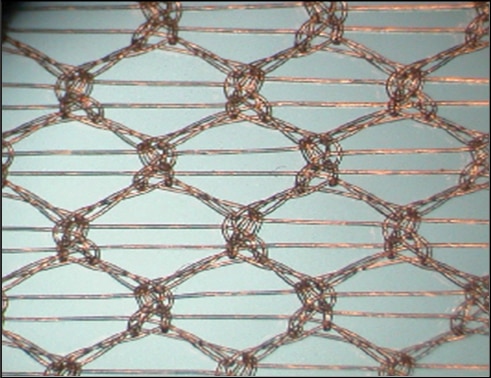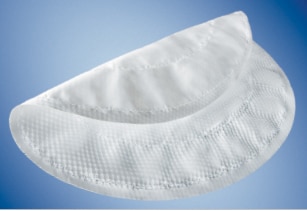INDICATIONS
Bard™ Composix™ L/P Mesh is indicated for use in the reconstruction of soft tissue deficiencies, such as for the repair of hernias and chest wall defects.
CONTRAINDICATIONS
- Literature reports there may be a possibility for adhesion formation when the polypropylene is placed in direct contact with the bowel or viscera.
- Do not use the Bard™ Composix™ L/P Mesh in infants or children whereby future growth will be compromised by use of such material.
- Do not use Bard™ Composix™ L/P Mesh for the reconstruction of cardiovascular defects.
PRECAUTIONS
Davol fixation devices or nonabsorable monofilament sutures are recommended to properly secure the prosthesis. If other fixation devices are used, they must be indicated for use in hernia repair. Care should be taken to ensure that the prosthesis is adequately fixated to the abdominal wall. If necessary, additional fasteners and/or sutures should be used.
WARNINGS
- Ensure proper orientation; the solid white surface (ePTFE) must be oriented against the bowel or sensitive organs. Do not place the polypropylene mesh surface against the bowel. There may be a possibility for adhesion formation when polypropylene mesh is placed in direct contact with the bowel or viscera.
ADVERSE REACTIONS
Possible complications include seroma, adhesions, hematomas, inflammation, extrusion, fistula formation and recurrence of the hernia or soft tissue defect.
Please consult package insert for more detailed safety information and instructions for use.
BD-14807



